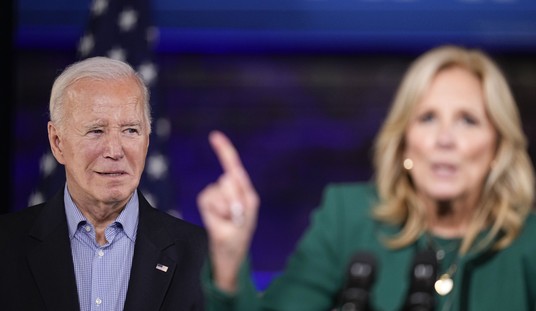We are now in the middle of a full-blown Jihad, that is to say we have against us the fiercest prejudices of a people in a primeval state of civilization. — Gertrude Bell, Baghdad, Iraq, September 5, 1920
—————————
General Daniel P. Bolger’s Why We Lost — A General’s Inside Account of the Iraq and Afghanistan Wars is a sobering read. Bolger went from a one- to a three-star general in Iraq and then Afghanistan, and once commanded 20,000 troops in Baghdad. He served eight years in these war zones, between 2005 to 2013. Bolger characterized (on p. 256) the much ballyhooed 2007 Iraq “surge,” at its tactical conclusion, thusly:
The casualty and hostile attack rates went down in the fall of 2007, never again to rise to their previous heights, at least during the remaining years of the American campaign. But the fighting never stopped either. It lingered, a third of the previous rate, but that was no comfort to those who fell, killed or wounded, or to their families. Al-Qaeda in Iraq, unrepentant Sunni rejectionists, surly Sadrists [Shiite followers of Muqtada al-Sadr], and Iranian handlers all kept their pieces on the board. As long as the occupiers remained, there would be attacks. As long as Iraq was Iraq, violence remained part of the picture.
Gen. Bolger elaborated on these sentiments in a November 2014 op-ed, while exploding the standard mythical trope about how the alleged “decisively victorious” troop surge — with irony, repeatedly dubbed “fragile and reversible” by its putative architect, General Petraeus — was “squandered” by the Obama administration’s policies:
Here’s a legend that’s going around these days. In 2003, the United States invaded Iraq and toppled a dictator. We botched the follow-through, and a vicious insurgency erupted. Four years later, we surged in fresh troops, adopted improved counterinsurgency tactics and won the war. And then dithering American politicians squandered the gains. It’s a compelling story. But it’s just that — a story.
The surge in Iraq did not “win” anything. It bought time. It allowed us to kill some more bad guys and feel better about ourselves. But in the end, shackled to a corrupt, sectarian government in Baghdad and hobbled by our fellow Americans’ unwillingness to commit to a fight lasting decades, the surge just forestalled today’s stalemate. Like a handful of aspirin gobbled by a fevered patient, the surge cooled the symptoms. But the underlying disease didn’t go away. The remnants of al-Qaida in Iraq and the Sunni insurgents we battled for more than eight years simply re-emerged this year as the Islamic State, also known as ISIS.
With sad predictability, one never sees General Bolger on Fox News, nor is it likely he will be advising any of the burgeoning group of Republican contestants for the 2016 presidential nomination. But there are a litany of even more important topics for discussion regarding the ongoing sectarian Iraq morass that are never broached by either Fox News or the Republican presidential hopefuls.
When President George W. Bush announced the “surge” in 2007, he maintained the overall objectives for this great expenditure of precious U.S. blood and treasure were to establish a “unified, democratic federal Iraq that can govern itself, defend itself, and sustain itself, and is an ally in the War on Terror.”
Any rational post-mortem indicates none of those goals were achieved, from either an Iraqi or U.S. perspective, even in the near term, let alone chronically. Before the surge wound down in June 2008 — but at the height of its alleged “success” — a March 2008 poll from Iraq found that 42% of Iraqis labeled attacks on U.S. forces acceptable, and only 4% believed that U.S. forces were responsible for the transient decline in violence.
The poll also indicated that 63% (total) maintained that the presence of U.S. troops in Iraq was actually worsening (26%), or had not improved (37%) the security situation.
In July 2008, both Iraqi Prime Minister Nuri Al-Maliki and Iraqi National Security Advisor Muwaffaq Al-Rubaie sought a timetable for the withdrawal of foreign troops. As Gen. Bolger’s lucid account reminds us, the November 17, 2008 Bush administration “Agreement Between the United States and the Republic of Iraq on the Withdrawal of U.S. Forces from Iraq and the Organization of Their Activities During Their Temporary Presence in Iraq” made requisite the full U.S. withdrawal by December 31, 2011, and an interim removal of American units from city and village localities by June 20, 2009.
Furthermore, this same Bush administration-negotiated SOFA (status of forces agreement) with our “Iraqi allies,” per Article 27, paragraph 4 (“Iraqi land, sea and air shall not be used as a launching or transit point for attacks against other countries.”) prohibited the U.S. from attacking, for example, Iranian nuclear production facilities or improvised explosive device factories from Iraqi bases and airspace.
A cursory, incomplete tally of murderous sectarian Sunni-Shiite car bombings in Iraq for the four years after the surge — June 2008 through June 2012 — reveals at least 65 attacks leaving 2000 dead and two- to threefold that number injured, many seriously. More importantly, then Iraqi President Talabani attended an Orwellian counter-terrorism conference in Tehran (June 25–26, 2011), just six months before the withdrawal of U.S. forces.
Our Iraqi “ally” failed to object to the conference agitprop of their Iranian hosts “defining” the United States and Israel as the primary sources of global terrorism. Further:
In his meeting with Iraqi president Jalal Talabani, [Iran’s Supreme Theocrat Leader] Khamenei said that U.S. power in the Middle East had declined, and that this fact should be taken advantage of against the U.S. Talabani replied that the Iraqis were united in their opposition to the ongoing U.S. presence in their country, and likewise asked for Iranian assistance.
On August 14, 2007, when the surging U.S. had 166,000 troops on the ground in Iraq — not the mere one-fifth (or one-tenth) residual numbers pined for by those who insist the failure to secure a 2011 status of forces agreement with the al-Maliki regime sealed the undoing of Iraq’s “stability” — 796 Yazidis were slaughtered and another 1562 wounded in one day during four gruesomely synchronized jihadist bombings. (See here and here, and here for U.S. Army confirmation of the death toll.) Veteran Middle East journalist Tom Gross provided this characterization of the events:
[T]wo tons of explosives detonated in four coordinated explosions in the northern Iraqi villages of Qahtaniya and Jazeera on August 14, 2007, the target was Iraq’s Yazidi ethnic and religious minority. 796 people died and over 1,500 were wounded as a fireball led to the collapse of mud and stone buildings on families trapped inside; many were then burned alive.
The endless critiques of Obama administration policy failures in Iraq last summer (see Krauthammer on Fox News; Hegseth in National Review Online) revealed a glaring lacuna in honest, self-critical discourse by omitting all discussion of the “mid-surge” Yazidi catastrophe. Such warped analyses were pathognomonic of a broader, much more disturbing ethical and intellectual travesty: ongoing attempts by mainstream conservatives to rationalize their uninformed, witless adherence to the utopian “(Bernard) Lewis doctrine”-inspired “Islamic democracy” fiasco in Iraq.
The successful post-World War II paradigm of neutralizing Japan’s bellicose, religio-political creed of Shintoism has been turned on its head with regard to Islam and the theocratic Islamic legal code Sharia, which is imbued with jihad and completely antithetical to modern human rights constructs.
Despite the proven, concrete success of the post-World War II reforms in Japan, past intellectual honesty on Shinto was replaced by craven, politically correct ignorance on Islam in Iraq and Afghanistan. Instead, as championed by a callow American pseudo-scholastic apologist for Islam’s Sharia, who evangelized for “Islamic Democracy,” Sharia-compliant Iraqi and Afghan constitutions were crafted (and of course extolled by this same “scholar,” here and here).
Born of willful ignorance about living Islamic doctrine and history, this deficient mindset begot a corollary dangerous absurdity: embrace of the Petraeus “COIN” theory, a see-no-jihad, see-no-Islam military strategy designed, perversely, to somehow “defeat” the ancient-cum-modern forces of global Islamic jihadism.
The current predicament of Iraq’s Yazidis and Christians, past as prologue, also illustrates mainstream conservative ignorance and dishonesty about Islam and the creed’s timeless sine qua non institution, jihad.
Post-surge Iraq — the paragon of General David Petraeus’ counterinsurgency (COIN) doctrine “triumph” — rapidly deteriorated into a hotbed of anti-Christian, and anti-Yazidi, Islamic brutality well before the emergence of the traditionalist Islamic Caliphate movement ISIS.
As reported December 5, 2011, in the Wall Street Journal, according to Archbishop Louis Sako of the Chaldean Catholic Church in the northern provinces of Kirkuk and Sulimaniya, at least fifty-four Iraqi churches had been bombed and at least 905 Christians killed in various acts of violence since the U.S. invasion toppled Saddam Hussein in 2003.
Noting that hundreds of thousands of Iraqi Christians have fled, the archbishop stated: “It’s a hemorrhage. Iraq could be emptied of Christians.” Archbishop Louis Sako’s assessment was confirmed by a Minority Rights Group International report released at the end of November 2011 which included these summary findings:
Since 2003, Iraq’s religious minority communities have been targeted for abduction, rape and murder and had their homes and businesses destroyed, specifically because of their faith. They have received threats and intimidations to pay a protection tax, convert to Islam, or leave their homes and country. The violations against religious minorities documented by MRG in its 2010 report continue. Major areas of ongoing concern are Baghdad, Nineveh Plains, Mosul and Kirkuk. … Christians are at particular risk for a number of reasons, including religious ties with the West, perceptions that Christians are better off than most Iraqis, and leadership positions in the pre-2003 government. The fact that Christians, along with Yezidis, continue to trade in alcohol in Iraq (both groups have traditionally sold alcohol in Iraq), has also made them a target in an increasingly strict Islamic environment. Waves of targeted violence, sometimes in response to the community’s lobbying for more inclusive policies (for example, reserved seats in elections) have forced the Christian community to disperse and seek refuge in neighboring countries and across the world. In 2003, they numbered between 800,000 and 1.4 million; by July 2011, that number had fallen to 500,000, according to USCIRF [the United States Commission on International Religious Freedom].
The United States Commission on International Religious Freedom (USCIRF) Report on Iraq, December 2008, chronicled the oppressions to which the Yazidis were subjected — including mass killings — after the U.S. invasion in 2003 through the end of the “surge”:
Yazidis, Yazidi leaders, and Yazidi sites in Iraq have suffered threats and attacks since at least 2004. Minority Rights Group International reports that there were 25 reported killings of and 50 reported violent crimes targeting Yazidis from September to December 2004. These incidents included two men being beheaded days after being threatened by conservative Muslims for failing to abide by a smoking ban during Ramadan. In Mosul in March 2004, flyers could be found stating that divine awards awaited those who killed Yazidis and in 2007, the Islamic State of Iraq, issued a fatwa calling for all Yazidis to be killed. In September 2004, the Yazidi spiritual leader survived a bombing attack in Aif Sifni.
Yazidi cultural buildings and private property were damaged after dozens of Kurds attacked Shaikhan in retribution for two Yazidi men being found in a car with a married Kurdish woman in 2007. On April 22, 2007, unidentified gunmen killed 23 Yazidis from the Kurdish town of Bashika. Reportedly, the gunmen stopped a bus outside of Mosul, discerned the Yazidis on the bus from their identity cards, told all other passengers to get off the bus, and drove the Yazidi men to eastern Mosul, where they were lined up against a wall and executed. Yazidi refugees told the Commission that after this incident, members of their community in Mosul started receiving threatening letters, spurring many to flee the city. The scale of the attacks against Yazidis increased dramatically on August 14, 2007, when four coordinated suicide bombings in the northern Yazidi towns of Qahtaniya and Jazeera killed 796 civilians and wounded another 1,562. The attack, which destroyed the two towns and left more than 1,000 Yazidi families homeless, followed … letters and leaflets condemning Yazidis as “infidels” and “anti-Islamic.”
The UN reported that, in the first half of 2008, at least 5 Yazidis were killed in Sinjar. On December 7, 2008, two Yazidis reportedly were killed in a liquor store in Mosul. On the night of December 14, 2008, seven members of a Yazidi family were gunned down in their home in Sinjar. Minority Rights Group International reports that those Yazidis who remain in Iraq are fearful of traveling outside their communities, which has led many farmers to lose their livelihoods because they no longer go to markets to sell their produce. Yazidis with whom the Commission met report members of the community having to depend on middlemen to sell their produce.
Many Yazidis have been attacked for owning alcohol shops, although The New York Times has reported that some Yazidis opened liquor businesses in Baghdad in late 2007. Yazidis have reported to the Commission that Muslims refuse to frequent their businesses or businesses that employ Yazidis because Muslims consider them to be “dirty.” Many Yazidis have stopped performing religious ceremonies, fearful of being attacked.Yazidis also complain of being underrepresented in local government and of their representatives being barred from or ignored in meetings.
Sebastian Maisel, an American academic researcher studying the Yazidis, updated their situation since the 2011 U.S. troop withdrawal, and noted continued attacks against them beyond the Kurdish-controlled areas, prior to the ISIS jihadist depredations:
On May 14, 2013 ten Yezidi shopkeepers were killed during an armed attack on alcohol vendors in Baghdad. It is worth mentioning that only non-Muslims are permitted to sell alcohol, and that the armed forces do little to protect them. The Muslim-majority public looks down upon the industry and those who work in it, adding to the anti-Yezidi discourse. In an increasingly segregated Iraqi society, Yezidis have not found acceptance or safety outside their traditional realm.
Pace great expense of British blood and treasure over more than a decade of military occupation beginning at the end of World War I and even after the Assyrian massacres (by Arab and Kurdish Muslims) of 1933-34 that transpired upon Britain’s withdrawal, British Arabist S.A. Morrison wrote (in “Religious Liberty in Iraq”, Moslem World, 1935, p. 128):
Iraq is moving steadily forward towards the modern conception of the State, with a single judicial and administrative system, unaffected by considerations of religion or nationality. The Millet system [i.e., Ottoman dhimmitude — not reflected by this euphemism] still survives, but its scope is definitely limited. Even the Assyrian tragedy of 1933 does not shake our faith in the essential progress that has been made. The Government is endeavoring to carry out faithfully the undertakings it has given, even when these run directly counter to the long-cherished provisions of the Shari’a Law.
But it is not easy; it cannot be easy in the very nature of the case, for the common people quickly to adjust their minds to the new legal situation, and to eradicate from their outlook the results covering many centuries of a system which implies the superiority of Islam over the non-Moslem minority groups. The legal guarantees of liberty and equality represent the goal towards which the country is moving, rather than the expression of the present thoughts and wishes of the population. The movement, however, is in the right direction, and it may yet prove possible for Islam to disentangle religious faith from political status and privilege.
Eight decades later, the goals of true “liberty and equality” for Iraq (and Afghanistan) remain just as elusive.
After yet another Western power has committed great blood and treasure toward their liberation in both Muslim nations, their politico-religious leadership appears more likely to continue promoting Sharia despotism than liberal democracy.
Pew survey results reported in 2013 have confirmed the abject failure of the U.S.-midwifed Iraqi and Afghan “democracies” to fulfill the utopian aspirations of the Bernard Lewis doctrine. The negative prognostications, epitomized by my colleague Diana West’s evocative description “Making the world safe for Sharia,” have instead been realized.
Specifically, the Pew data indicated 91% of Iraqi Muslims and 99% of Afghan Muslims supported making Sharia the official state law of their respective societies.
Hurriyya, the Arabic term for “freedom” which actually means “perfect slavery to Allah and his Sharia” — Islamic religious totalitarianism — has triumphed over the diametrically opposed Western, Judeo-Christian conception of individual liberty founded upon the bedrock freedoms of conscience and expression.
We have a moral obligation to oppose Sharia, which is antithetical to the core beliefs for which hundreds of thousands of brave Americans have died, including — between 2001 and the end of 2014 — over 6800 in Iraq and Afghanistan.
There has never been a Sharia state in history that has not discriminated (often violently) against the non-Muslims (and Muslim women) under its suzerainty. Moreover, such states have invariably taught (starting with Muslim children) the aggressive jihad ideology which leads to predatory jihad “razzias” on neighboring “infidels,” even when certain members of those “infidels” happened to consider themselves Muslims, let alone if those infidels were clearly non-Muslims.
That is the ultimate danger and geopolitical absurdity of a policy that ignores or whitewashes basic Islamic doctrine and history, while, however inadvertently, making or re-making these societies “safe for Sharia.”









Join the conversation as a VIP Member